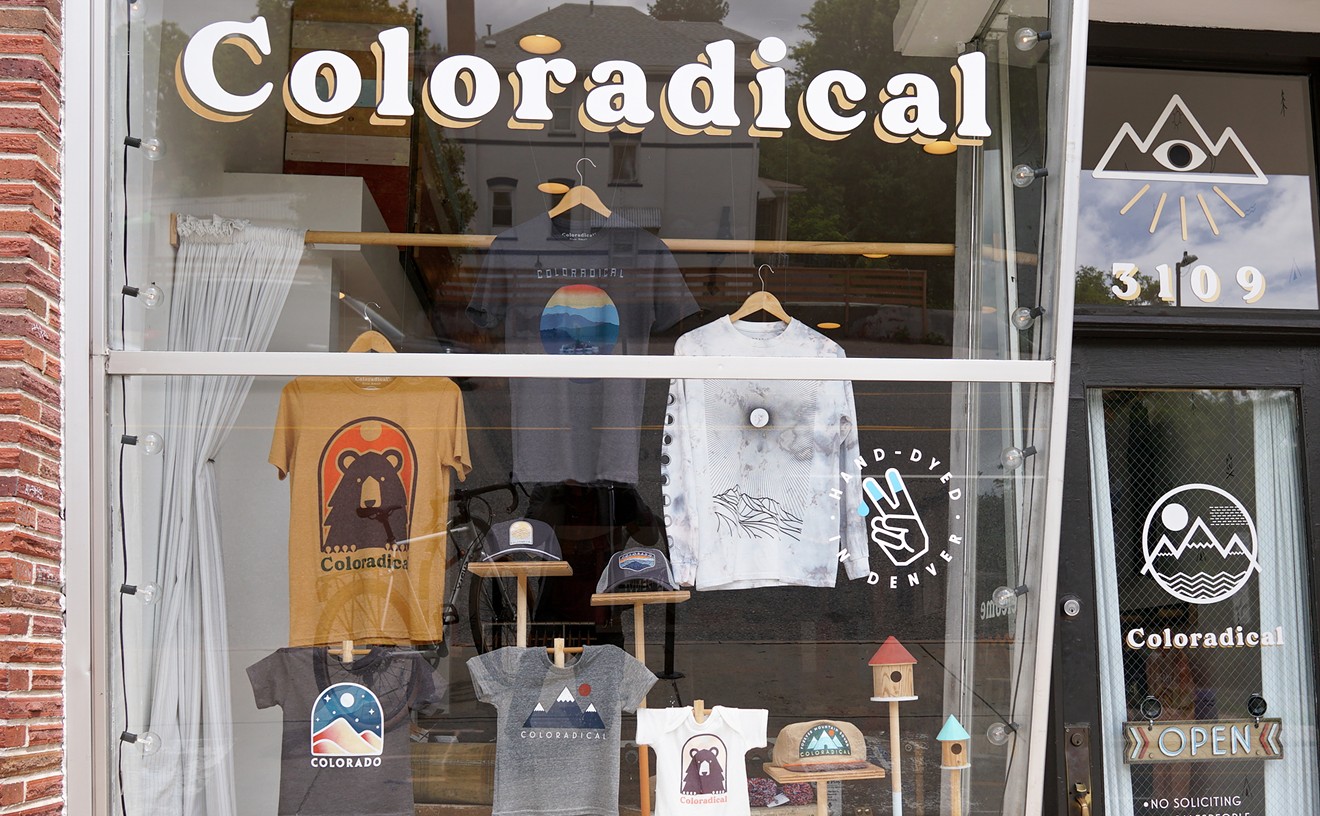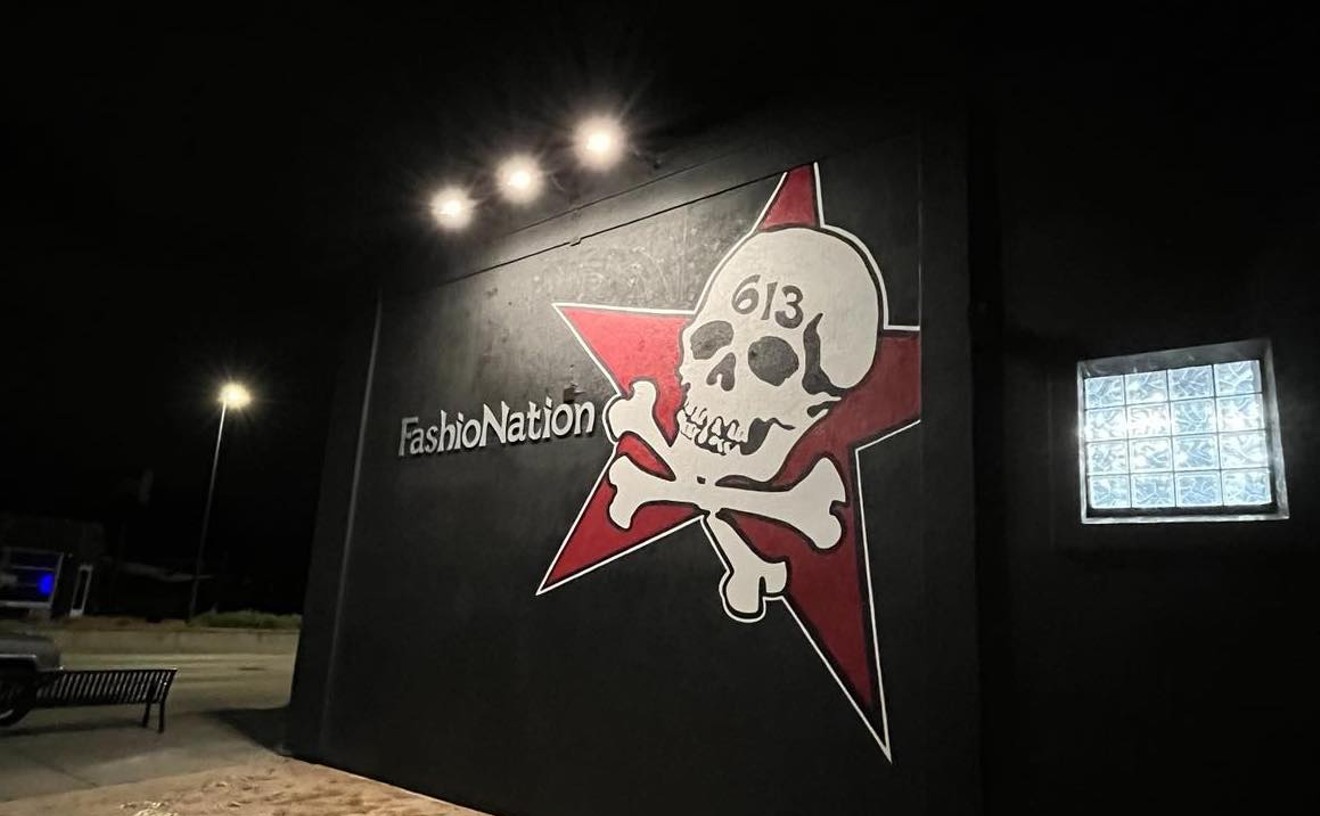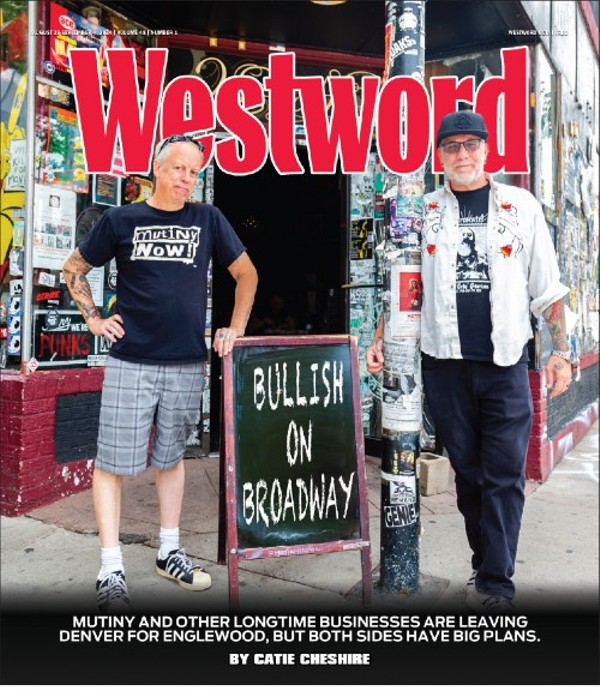Goodstein will appear at Tattered Cover Colfax tonight to discuss and sign copies of his book; we recently sat down with this man of yesteryear to get a sneak peak at what Park Hill Promise has to offer.
See also: Ghost Adventures host Zak Bagans comes to Denver, meets Phil Goodstein, acts like a child Historian Phil Goodstein on knowing the past and shaping the present in Denver The history of cannabis in Colorado...or how the state went to pot
Westword: You've written about so many fascinating and exotic corners of the city. Park Hill seems somewhat . . . pedestrian. What drew you to write about Park Hill?
Phil Goodstein: It's a beautifully landscaped area. It is the epitome of the "city beautiful in a residential area" city-planning design in the first twenty years of the twentieth century. In terms of what I'm interested in as a writer, it's power. Who runs the city? In some ways, Park Hill is at the center of this. You could make a comparison of the country-club neighborhood verses Park Hill. While some of the big money figures have made Park Hill their home, it generally hasn't been the home of those senior executives, bank presidents, CEOs; they generally live in the Country Club area, Cherry Hills, places like that.
But what you could call the coordinating class, those upper executives, the wire pullers, the manipulators, what Noam Chomsky called "the American mandarin," Park Hill is ground zero for that. If you want to understand how the Denver Democratic Party got to be how it is -- neo-conservatism, new Democrats -- look to Park Hill. If Barack Obama lived in Denver, he would live in Park Hill. In fact, people have made the parallel between Hyde Park in Chicago and Park Hill: the upper-class, distinguished, worldly area with an integrated aura associated with it. It is amazing the number of leaders of the Democratic Party who have had Park Hill as their home: Federico Pena, Wellington Webb, Lee White, Happy Haynes, John Hickenlooper.
If you are happy with the Obama/Roy Romer/Democratic establishment, then Park Hill is the neighborhood for you. Even if you still want the new-politics liberalism of the 1970s -- which Park Hill was a strong network for -- then Park Hill is for you. It's a bit narrow, and we haven't even mentioned the whole black dimension. Can you touch on that briefly? I understand there's some racial disparity in Park Hill.
Moving to Park Hill has always been seen as the ultimate sign of middle-class success. By the late 1950s some blacks were seeing this as well and began moving to middle-class Park Hill. And they received a less than welcoming embrace. Part of what begins the Park Hill Action Committee was sending the message of: Our black brothers and sisters are welcome in Park Hill (so long as they're middle-class and take good care of their homes and fit in with our morals).
And to understand this you have to look at Park Hill in terms of pre-World War II and post-World War II. Pre-World War II was broad parkways, big sidewalks, mature trees, and Post-World War II was no sidewalks, few trees, slapped together ranch-houses, and once you get past 32nd Avenue the even more dilapidated it becomes. Those were starter homes for veterans. A lot of white families were moving out and black families were moving in.
There used to be some nice shopping districts over there that became black-crime headquarters. A lot of black gangs formed around this time: The Bloods are the Park Hill gang, and the Crips are more west of Colorado Boulevard area.
How long have you been thinking of writing a book on Park Hill?
It is a fascinating area. I've been giving walking tours through Park Hill since about '86, '87. A previous book of mine is called D.I.A. and Other Scams. It's a 500-page volume -- I'd say about 150-200 pages of it deals with Park Hill. Because Park Hill has been the central neighborhood of Denver since the 1960s in terms of defining integration, school issues, and then the airport has such close Park Hill connections. And the cynicism that goes on with Park Hill and the airport is amazing.
What's the story there?
The city's long-time airport was Stapleton airfield, directly east of Park Hill. At one time Park Hill heavily promoted that it was next to the airport for convenience. A large number of airport workers lived in Park Hill. Then jet airplanes came in in 1960. Now, they could've made sure no jet airplanes went over residential developments, and made sure no housing developments were built under the path of the jet airplanes. But instead they said the airlines can do whatever they want and to hell with Park Hill.
Now, the mayor of Denver is living in Park Hill at this time and the racket of the airplanes over the area is incredible. There were periodic efforts to do something about the noise, but they never followed through. So Park Hill residents sued the city in 1981 for airport noise. The city vehemently opposed the lawsuit and was committed to keeping Stapleton open. But as soon as [then mayor] Federico Pena decided that he wants to be the father of DIA, he orders the city to settle the lawsuit -- which was on terms that Park Hill residents never dreamed of getting.
Better than they expected?
Yes. All they wanted was an abatement of the noise pollution. But the lawsuit settlement that the mayor ordered was that the city has to build a new airport to solve the Stapleton/Park Hill noise conundrum. And meanwhile, a lot of the flight patterns of the planes still go over Park Hill.
And now Mayor Michael Hancock wants to put in an areopolis, a new city all around DIA. But the purpose of the DIA was to get it away from the city -- now we're bringing the city to the airport!
Growing up in Park Hill, and now writing about it, how would you define the characters and culture of the neighborhood?
There are many different Park Hills. There are the prestigious, distinguished, elite Park Hill -- fine houses, well-educated people. Individuals who embrace numerous trends, go to art shows, the symphony.
Was this the original type of society that first settled Park Hill?
The origins of Park Hill are in the 1880s. The name first shows up around 1887 to denote the hill off to the east of City Park -- and the name pops up in numerous real estate filings. And then there's the typical real estate hyperbole of this is going to be the most distinguished area, blah, blah, blah. They wanted to be beyond the evil, wicked city, with City Park as a literal barrier between them. But a lot of real estate developments have this hype at the beginning. And there were many churches developed in the area -- were the influx of people moving to Park Hill motivated by a kind of puritanical utopianism? Like the John Winthrop line about being a city on a hill?
I never thought of the city on a hill ideology, that's a good one. But what often happens in new, sprawl, suburban areas is that they want to prove to themselves, as much as anyone else, that they're civilized, by having a school, a church. And they build the church in their own image along the way.
And that brings up the question: who, or what, is Park Hill? There was a church-sponsored organization in the 1960s called The Park Hill Action Committee. And they were openly blunt that we are Christians in action, we are moral, we are righteous, and you better believe what we believe or else you're an un-American bigot. And that's part of Park Hill that I never felt too comfortable with.
Growing up in a Jewish family in that neighborhood, was the ever any tension about your faith with your neighbors?
There was never any blunt anti-semitism. It was subtle, like the mandatory singing of Christmas carols in Park Hill schools. For the most part, Jewish Park Hill wanted to go along with the Christians of Park Hill in the name of brotherhood and blah, blah, blah.
And another consideration for what brought people together in Park Hill was that it was a strong prohibitionist neighborhood. Not only were there no liquor stores allowed, but no liquor is to be served even in restaurants. This lasted into the 1990s, and that was after some nasty fights. But this gets back into the hypocrisy of the neighborhood: While they're being so viciously anti-liquor license, they're also promoting themselves as having all these great wine tastings and wine parties. A lot of supporters of prohibition drank, they just didn't want other people to drink. Phil Goodstein will discuss and sign copies of Park Hill Promise on Monday, November 26 at 7:30 p.m. at the Tattered Cover, 2526 East Colfax Avenue. Click here for more information.
Follow @Westword_Music











